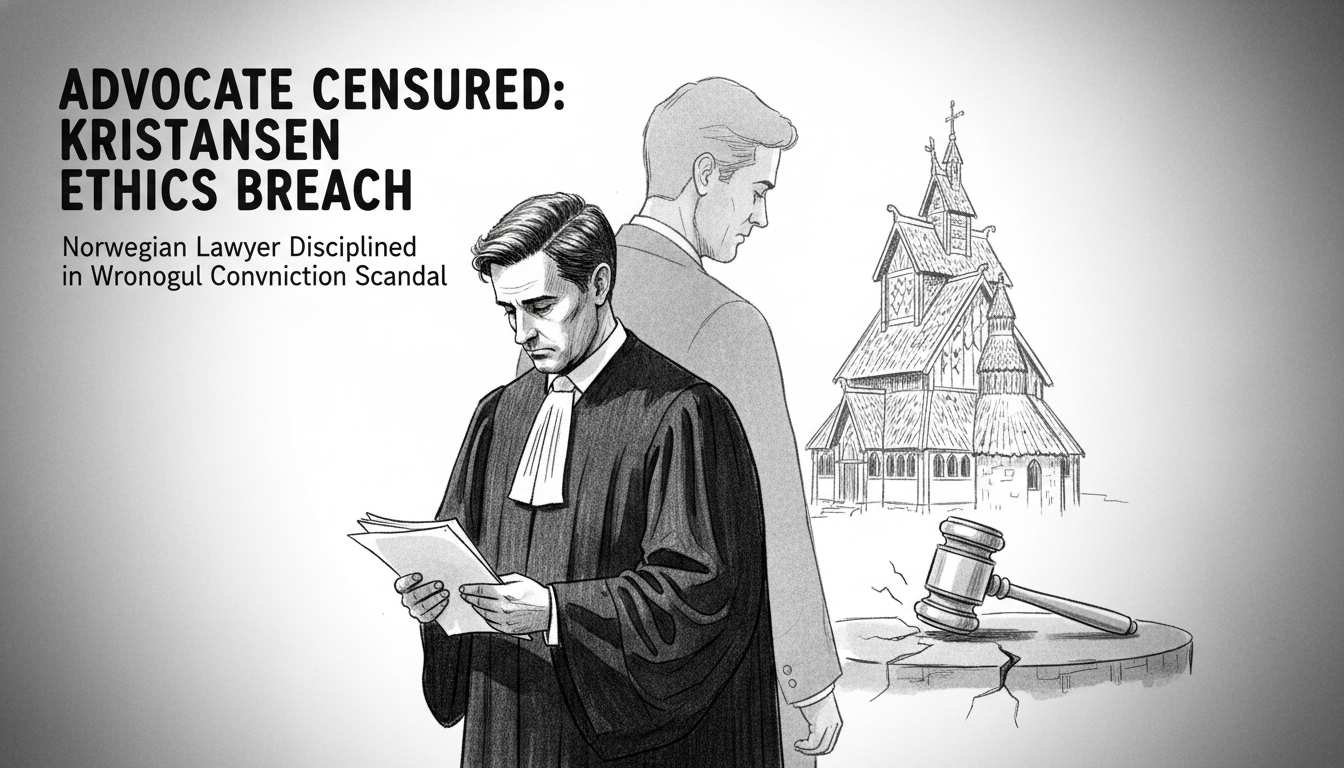A prominent Norwegian lawyer faces disciplinary action for violating client confidentiality rules in one of the country's most controversial legal cases. The Norwegian Bar Association's Disciplinary Board has ordered Arvid Sjødin to pay 20,000 kroner in legal costs for breaching professional ethics toward his former client Viggo Kristiansen.
The board found Sjødin violated confidentiality obligations when he made statements about Kristiansen to media outlets regarding another legal case involving the former client. The disciplinary committee specifically cited four separate statements that breached legal ethics standards.
Kristiansen's current lawyer expressed satisfaction with the decision. He stated his client views the ruling as correct and appropriate given the circumstances.
This development represents the latest chapter in Norway's complex Baneheia case, which involved double murder convictions that were later overturned. Kristiansen spent more than two decades in prison before his 2022 acquittal, making his case one of Norway's most significant judicial reversals.
The Norwegian legal system operates with strict attorney-client confidentiality rules that persist even after professional relationships end. This case demonstrates how seriously disciplinary bodies treat these ethical obligations, particularly in high-profile matters.
Following his exoneration, Kristiansen received 55 million kroner in state compensation for wrongful imprisonment. However, his freedom has been accompanied by ongoing legal disputes with former supporters who helped champion his case for years.
Several financial claims have emerged against Kristiansen since his release. A prominent journalist previously sued for 4.4 million kroner for work performed on the case, though that claim was initially rejected in district court. Another former supporter has recently filed a three-million-kroner lawsuit that began proceedings last week.
The disciplinary case against Sjødin originated from his potential involvement as a witness in one of these financial disputes. Questions emerged about whether his testimony would be restricted by confidentiality requirements, leading to his controversial media statements.
This situation highlights the delicate balance lawyers must maintain between public commentary and professional obligations, especially in cases that capture national attention. The Norwegian disciplinary system aims to maintain public trust in legal professionals through such oversight mechanisms.
Legal ethics experts note that high-profile cases often test the boundaries of attorney conduct long after formal representation ends. The substantial state compensation awarded in wrongful conviction cases can create complex financial dynamics between exonerees and their former advocates.
The ongoing legal disputes surrounding Kristiansen continue to unfold in Norwegian courts, with multiple financial claims working through the judicial system simultaneously.

